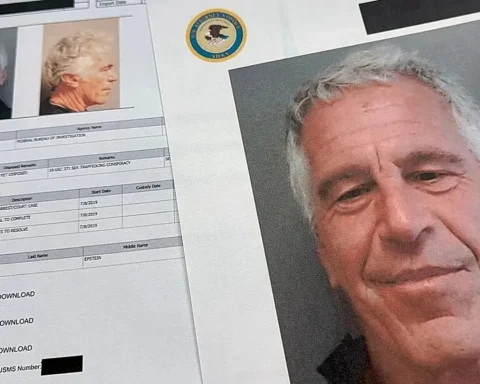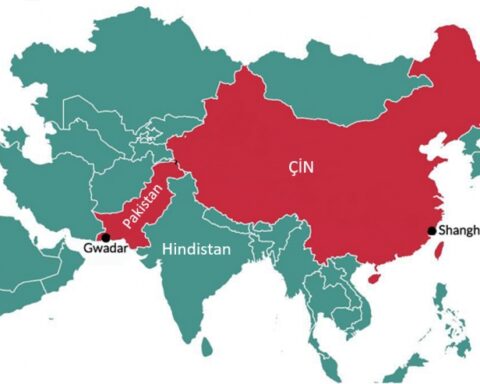In the immediate aftermath of the Oct. 7 attacks on Israel, the Jewish state received the usual outpouring of sympathy from the craven leadership classes of the West. That is to be expected from politicians who are bought off and extorted by Jewish interest groups.
That said, Israel also received a deluge of support from the least likely of the places — the Indian Subcontinent. Thousands of Hindu nationalists took to social media to express their sympathies with Israel after Hamas’ surprise attack on Israel. One could go on X/Twitter to see threads brimming with pro-Israeli posts from the social media platform’s large base of Indian users.
Indian Prime Minister Narendra Modi, a staunch Hindu nationalist, offered his support to the Jewish state immediately after the Hamas attack, declaring, “Deeply shocked by the news of terrorist attacks in Israel. Our thoughts and prayers are with the innocent victims and their families. We stand in solidarity with Israel at this difficult hour.” Curiously, Modi became the first Indian Prime Minister to visit Israel in 2017, further accelerating a growing economic and security relationship between the world’s largest democracy and the Jewish state.
Modi’s party, the Bharatiya Janata Party (BJP, lit: “Indian People’s Party”) is notorious for its hyper-Zionist sympathies. The ideological progenitor of the BJP, the Rashtriya Swayamsevak Sangh (RSS), has long wanted to emulate the Zionist project. RSS intellectual Vinayak Damodar Savarkar, a source of ideological inspiration for many present-day BJP leaders, published a book “Hindutva” in 1923, where he advocated for the formation of a Hindu Rashtra (Hindu state). Savarkar also waited in anticipation for the Jews to achieve the “Zionist dream” of transforming Palestine into a Jewish state. The RSS ideologue wrote effusively about the prospect of a Jewish state: “If the Zionists’ dreams are ever realised — if Palestine becomes a Jewish state — it will gladden us almost as much as our Jewish friends.”
There is a growing synergy between Israeli nationalists, Hindu nationalists, and pro-Zionist interests in the West. In fact, the gate-keeping, Israel First “National Conservativism” movement backed by the Edmund Burke foundation recently featured two BJP politicians Ram Madhav and Swapan Dasgupta at National Conservatism’s July 2024 conference. Madhav and Dasgupta have expressed pro-Israeli sentiments on multiple occasions. The former is open about using the Indian diaspora, which numbers over 30 million, as a tool for advancing India’s interests abroad.
“We are changing the contours of diplomacy and looking at new ways of strengthening India’s interests abroad,” declared Madhav in 2015, when he served as the general secretary of the BJP. To boot, Madhav wanted Indians to emulate global Jewry, noting “They [the Indian diaspora] can be India’s voice even while being loyal citizens in those countries. That is the long-term goal behind the diaspora diplomacy. It is like the way the Jewish community looks out for Israel’s interests in the United States.”
A similar philosemitic tendency is present among certain Indian-American political figures like failed presidential candidate Vivek Ramaswamy. Shortly after the Hamas attack on Israel, Ramaswamy spoke before the Republican Jewish Coalition on Oct. 28, 2023, making his slavish devotion to the Jewish State abundantly clear. Ramaswamy wanted the Israelis to deal with Hamas harshly, proclaiming, “I would love nothing more than for the IDF to put the heads of the top 100 Hamas leaders on stakes and line them up on the Israel-Gaza border.”
A strange partnership appears to be forming between Israeli nationalists and Hindu nationalists. On the surface level, Hindu nationalists and Israeli Jews share a common foe in Islamic militants, with the Israelis having to deal with threats organizations such as Hamas, Hezbollah, and the Houthis while India has to confront its Muslim majority neighbor in Pakistan and some of the proxy groups it has been accused of funding against India since both countries’ independence from Great Britain. As they say, the enemy of my enemy is my friend.
Building New Golems
Jews have a long history using non-White groups ranging from Blacks to Hispanics as golems to attack the United States’ White European population. That dynamic appears to be changing in recent years. The perennial threat of Black nationalists going off script and attacking Israel’s occupation of Palestine reared its ugly head in the wake of the Black Lives Matter unrest of 2020. Notable Black political pundits such as Marc Lamont Hill and Ta-Nehisi Coates have also attacked Israel, putting a dent in their respective careers.
Further suspicions about non-White no longer being reliable golems were confirmed by professor of political science at Tufts University Eitan Hersh and Harvard University PhD candidate Laura Royden who found in a study they published in 2022 that antisemitic attitudes tend to be stronger among Blacks and Hispanics than the broader White population. With these trends in mind, organized Jewry are likely looking for a new class of gentile useful idiots to tap into. Not all Indians are rabid BJP partisans, but their servile attitudes and deference to incumbent political power could make them useful goys for Jews to exploit.
Indians also hold considerable animosity towards White Christians. With the right poking and prodding, Indians’ racial grievances could be easily directed against the country’s White population — the perfect divide-and-rule scenario that allows Jews to thrive in multi-racial societies.
Mass importation of Indians could also be in the cards for Europe, whose multiple decades of importing migrants of Islamic confession has created a situation where these migrants are becoming more sympathetic with the Palestinian cause and broadly antisemitic. As mentioned before, Indians remain quite subservient and anti-White. More importantly, they’re not as incessantly pro-Palestinian nor who have a long history of butting heads with Jews the way White Europeans or Muslims have had over the past two millennia.
New Geopolitical Considerations
On the geopolitical front, the Judeo-American Empire faces the new challenge of containing an ascendant China in the Asia-Pacific region. Starting in 2007, the Quadrilateral Security Dialogue (The Quad) grouping of Australia, India, Japan, and the United States was established to counter Chinese influence in Asia. The United States subsequently cobbled together the AUKUS trilateral security pact with Australia and the United Kingdom. Now that the United States is taking its sights off Europe and the Middle East and shifting its focus towards Asia, one can expect a renewed effort to galvanize the Quad. Tightening up economic and security relations with fellow Quad member India will be key in the United States’ attempts to balance against China.
China and India have chilly relations. Since the Sino-Indian War of 1962 both countries have viewed each other with increasing skepticism. India, like the foreign elites of the United States, shares a mutual interest of ensuring that China does not achieve hegemonic status in Asia. Cynical American geopolitical strategists will look to prop up India and try to draw it into a prolonged military conflict with China that bleeds both countries dry. The world got a sneak preview of a renewed Chinese-Indian conflict during skirmishes between Indian and Chinese forces in the Himalayan region from 2020 to 2022.
Washington will try to further stoke these tensions now that its attention is being directed toward Asia. Once the dust settles from a hypothetical China-India conflict, the United States will be able to swoop into Asia as the pre-eminent power on the block. To secure India’s cooperation in such geopolitical perfidy, Washington will try to sweeten the deal by expanding legal immigration from India to the United States.
There are currently 5.2 million people of Indian origin residing in the United States. The Indian government views the Indian diaspora as a tool to not only advance its interests abroad, but also as a cash cow to exploit. In 2023, Indian workers stateside sent back $125 billion in remittances to their home country.
The Republican Party, which is enamored with perpetual war and cheap labor, would play ball in an arrangement to have the United States contain China with India’s help in exchange for opening the floodgates to Indian immigration. In the Trump era, Republicans have sounded more hawkish on illegal immigration, but still have blind spots on legal immigration — a flaw organized Jewry will exploit to advance their manifold interests of keeping the country diverse while also maintaining the United States as the leading superpower on the world stage.
With the changing geopolitical climate, the United States will be scrambling to find ways to keep its imperial enterprise afloat. As mentioned before, the consummation of a North American Union could be one endeavor to keep the gravy train going. Regardless of which anti-White, globalist path the United States’ occupational regime takes, the mass importation of Indian migrants will be a common denominator in these schemes to find every possible way to boost the big red line and have as many warm bodies as possible for future great power conflicts.
Once one group of golems turns on their masters, a new set must be created to maintain the charade. Indians could perhaps end up becoming the most pliant goyim shekels could buy.
*José Niño is a Hispanic dissident who is well aware of the realities of race from his experience living throughout Latin America and in the States.As a native of lands conquered by brave Spaniards but later subverted by centuries of multiracial trickery and despotic governance, José offers clear warnings to Americans about the perils of multiracialism.






